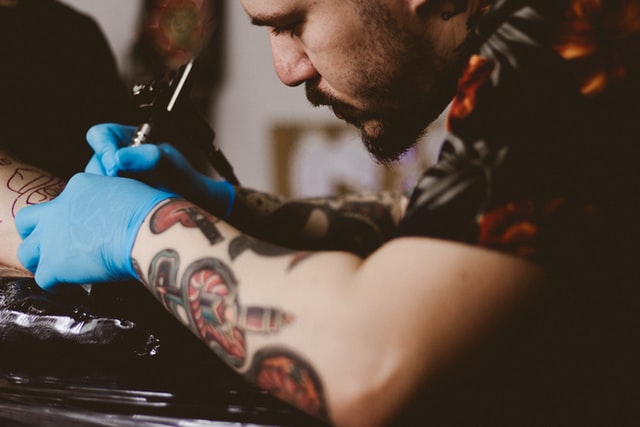A tattoo licensing company Solid Oak Sketches LLC (“SOS LLC”) has filed a complaint in the Southern District of New York Federal Court against Visual Concepts LLC (“VC LLC”), 2K Games Inc. (“2KG Inc.”) and Take-two Interactive Software Inc. (“TIS Inc.”) (collectively hereinafter “Defendants”) for displaying tattoos without a license on bodies of many basketball players of the National Basketball Association (“NBA”) featured in their NBA2K16 video game.
SOS LLC had entered into copyright licensing agreements with a plurality of tattoo artists, who had inked tattoos on some of the NBA’s star athletes. Some of these notable players included Eric Bledsoe, Lebron James, and Kenyon Martin. The NBA players and their respective tattoos unequivocally appear in the video game, the cover of the video game and in advertising pertaining to the video game. The Defendants allegedly began featuring players in the video game, including the tattoos without SOS’s express, written permission.
Since any initial efforts to license the copyrights for reproduction failed between the parties, SOS LLC consequently filed a federal complaint against the Defendants alleging that the Defendants are infringing its exclusive right to publicly display its copyrighted tattoos. On the other hand, the Defendant’s allege that the tattoos on the NBA players have been incorporated in the video game and its marketing material before SOS LLC was granted any copyright license from the tattoos artists.
As far as copyrights are concerned, any original works of authorship fixed in any tangible medium of expression can be protected under the Federal Copyright Law. Federal Copyright Law categorizes copyrightable works into seven (7) different works. Tattoos, in particular, can be categorized as pictorial, graphic or sculptural work. Tattoos are also considered copyrightable works because they meet the two (2) requirements under the Federal Copyright law: 1. Original works of authorship and 2. Fixation.
As far as the first requirement, original works of authorship, the Defendants could make a plausible counter argument that the tattoos created by the artists are from another source, and therefore, not original. The second requirement, fixation, would be tough to argue because the tattoos inked on human body and probably on a tattoo paper before it is transferred to the human body does qualify to be fixed on a tangible medium.
Copyright infringement lawsuits based on tattoo reproductions portrayed in media without the owner’s permission are getting more and more limelight in Federal Courts. Another infamous case involved former heavy weight champion of the world, Mike Tyson, when his face tattoo was featured in the Hollywood hit, Hangover Part II. The tattoo artist sued Warner Bros. Entertainment for the company’s reproduction of the tattoo in the movie without a proper copyright license. While an out of court settlement was reached between the parties, the Court therein asserted that the Plaintiff Tattoo artist had a strong likelihood of favorable verdict on the copyright infringement claim because tattoos are copyrightable works under the Federal Law.
While the tattoo industry has been reluctant to use the legal system to assert its intellectual property rights, if the Federal Court, in this case finds the the Defendant’s guilty of copyright infringement, especially a well-known video game manufacturer, developer and marketer, it may be more likely than not that other tattoo artists as the works true owners will be more forceful in the enforcement of their rights against media giants.





